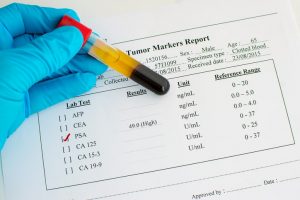 Men will undergo prostate screenings to measure levels of prostate-specific antigens (PSA) to determine if there is a risk of prostate cancer. PSA screening does come with its risks, so researchers have begun looking into whether PSA screening is necessary. And if so, do men need to undergo regular screening?
Men will undergo prostate screenings to measure levels of prostate-specific antigens (PSA) to determine if there is a risk of prostate cancer. PSA screening does come with its risks, so researchers have begun looking into whether PSA screening is necessary. And if so, do men need to undergo regular screening?
An official statement from the United States Preventive Services Task Force expressed that men have an 11 percent lifetime risk of being diagnosed with prostate cancer and a 2.5 percent lifetime risk of prostate cancer-related death. It is often advised that men be screened to determine their risk of prostate cancer along with early detection of it.
Advertisement
PSA screening – which is simply done through blood work – may not be as accurate as previously believed and could actually lead to unnecessary prescriptions and biopsies, which can hurt a man’s quality of life.
To determine whether PSA screening is safe and necessary, a special committee analyzed data of men with a high risk of prostate cancer and weighed out the benefits and risks.
The committee reviewed data from 721,718 men enrolled in trials. The panel of experts concluded that regular PSA screening is not recommended for most men and that regular screenings could be harmful to men’s quality of life.
The authors wrote, “Based on moderate- and low-quality evidence, PSA screening seems to increase the detection of prostate cancer of any stage, increases the detection of stage 1 and 2 prostate cancer, and slightly decreases the detection of stage 3 and 4 prostate cancer. Meanwhile, PSA screening is associated with considerable biopsy-related and cancer treatment-related complications.”
“We estimated that, for every 1,000 men screened, approximately one, three, and 25 more men will be hospitalized for sepsis, require pads for urinary incontinence, and report erectile dysfunction, respectively.”
The researchers did express that men considered to be at high risk for prostate cancer may still want to undergo regular PSA screening after discussing the risks and benefits with their doctor. Being at high risk for prostate cancer means a man has a family history of prostate cancer and is of African descent.
Advertisement
The experts suggest that doctors provide all the risks and benefits to patients so they can make an informed decision.
The author’s concluded that doctor’s recommending PSA screening “should explore their reasons for requesting a test, and include evidence-based discussions about possible harms and benefits of PSA testing, informed by the patient’s ethnicity and family history.”
Also read:
- Natural remedies and exercises for enlarged prostate (benign prostatic hyperplasia)
- Avoid these 4 foods for a healthier prostate
